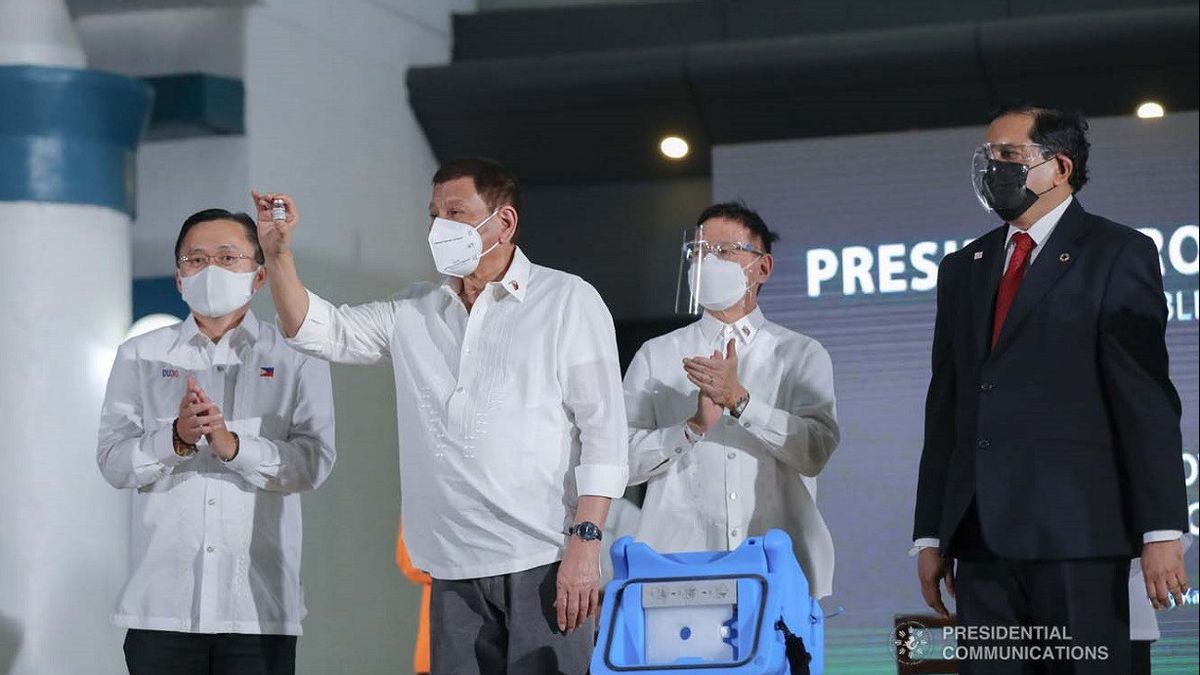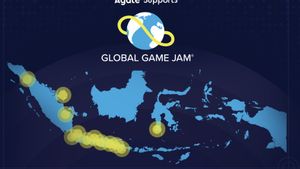JAKARTA - Philippine President Rodrigo Duterte approved a lockdown in the Philippine capital, Manila, to stop the spread of the Delta variant of COVID-19, while protecting the country's medical system, Friday local time.
The capital Manila area, which consists of 16 cities hosting more than 13 million people, will be placed under the strictest quarantine restrictions from August 6 to 20.
"While this is a painful decision, it is for the good of all," presidential spokesman Harry Roque said in a televised address.
The lockdown, which is expected to cost the economy US$4 billion, will prevent people from leaving their homes, except for essential shopping, while eating indoors and outdoors is prohibited.
"Delta (variant) already exists all over Metro Manila. This is the right intervention," said Benjamin Abalos, chairman of the capital's council of mayors, adding that the mayor plans to increase COVID-19 vaccinations by giving 250,000 doses a day, up from 150,000 now.
Meanwhile, Deputy Health Minister Maria Rosario Vergeire said the lockdown decision was in line with data modelers' forecasts warning of an explosion of COVID-19 cases triggered by the Delta variant.

Experts from the independent group Octa Research this week warned of a 'catastrophe wave' that could leave thousands of people dying unless governments act now. They recommend a strict lockdown for two weeks.
"We feel that the wave of disaster, left unfettered, unconstrained by a lack of government intervention, is a greater loss for all of us, loss of life and livelihood," said Professor Ranjit Rye, Octa's spokesman.
Along with this lockdown plan, the Philippine authorities have also decided to extend the ban on travelers coming from 10 countries including India, Indonesia, Thailand and the United Arab Emirates until August 15.
Under the strict lockdown, police checkpoints will likely be set up again across the region. Restaurants and food outlets will be limited to take-out, while salons, barbershops and nail spas will only be able to fill a third of their seats. Churches will be closed. Malls will remain open, but only pharmacies and shops providing groceries and home improvement needs will be open.
After battling the second-worst coronavirus outbreak in Asia, the Philippines has so far recorded more than 1.57 million confirmed cases of COVID-19 and more than 27,000 deaths. To date, the Philippines has reported 216 cases of the Delta variant, but health experts say there may be more undetected cases due to the country's slow genome sequence.
The second wave in the Philippines outbreak peaked in April, but infections have started to rise again in recent weeks. Currently, hospital occupancy in the capital region is 49 percent, while the rate for intensive care beds is 58 percent.
With only about 7 percent of the country's 110 million people fully vaccinated, tens of millions of Filipinos remain vulnerable to COVID-19.
To note, earlier this week President Duterte said he had no inclination to return to lockdown. However, he will not hesitate to act if the Philippines experiences a spike in infection cases like Indonesia and Malaysia.
"Don't let our economy bleed to the point of irreversible damage. But if the Delta variant leads to the kind of deadly spike that is now engulfing Indonesia and Malaysia, you have to go back into lockdown. If something goes wrong, I have to be firm, as in the days of early days," he said.
The English, Chinese, Japanese, Arabic, and French versions are automatically generated by the AI. So there may still be inaccuracies in translating, please always see Indonesian as our main language. (system supported by DigitalSiber.id)













